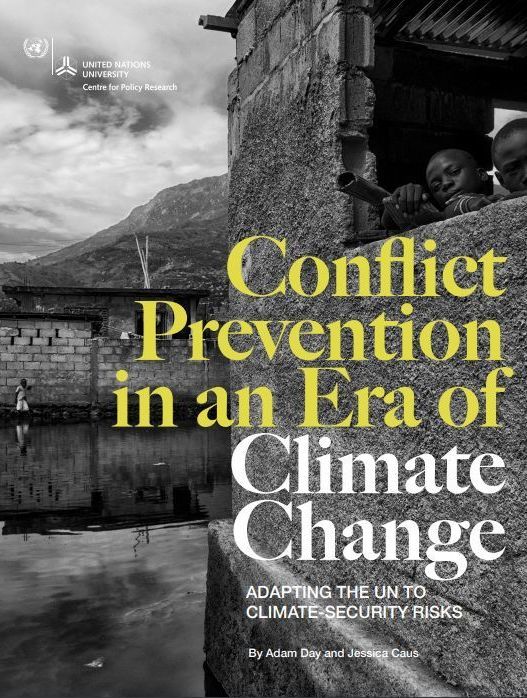Conflict Prevention in an Era of Climate Change: Adapting the UN to Climate-Security Risks

New York, 31 March 2020
A new report from the United Nations University - Centre for Policy Research entitled "Conflict Prevention in an Era of Climate Change: Adapting the UN to Climate-Security Risks" says that "Today’s violent conflicts are proving deadlier and more difficult to resolve than ever before. Over the past decade, the number of civil wars has nearly tripled, driven by a growth in transnational criminal networks, greater presence of radical groups in many settings and a willingness of international actors to support intra-state conflicts. This, in turn, has contributed to historic levels of conflict-related displacement and far higher numbers of civilians caught up in violent conflict".
There is a growing recognition too of the role of climate change in exacerbating conflict risks. Climate-related changes in transboundary water resources, food security, sea levels, flood risks and migration patterns are already impacting the stability of many States and will require large-scale adaptation and mitigation. Some have even warned of impending “climate wars,” driven by a dramatic shortfall in key resources as the world overheats. As these trends continue to affect a growing number of countries around the world, UN Secretary-General António Guterres has explicitly placed climate change as a central aspect of the UN’s prevention agenda, as have key Member States.
This report aims to support the UN and its partners in developing climate-sensitive conflict prevention approaches. It offers: (1) a literature review covering the major scholarship on the links between climate change and violent conflict; (2) in-depth case studies on climate-security dynamics in Bangladesh and Nigeria; and (3) cross-cutting conclusions and recommendations for the UN system.
The main cross-cutting recommendations are as follows:
- Analyse indirect impacts.
- Focus on governance, not just scarcity.
- Build up foresight capacities.
- Look for maladaptation and inequality.
- Adopt multi-scalar, cross-border responses.
- Build a common language for climate-security.
- Prioritize and bring climate-security into the broader climate discussion.
- Strengthen knowledge management and build an evidence base.
Authors: Adam Day, Head of Programmes & Jessica Caus, Research Assistant
Publisher: United Nations University - Centre for Policy Research
Publication Date: 31 March 2020
Download the Full Report as well as the Bangladesh Case Study and the Nigeria Case Study from the UNU-CRP publication page.